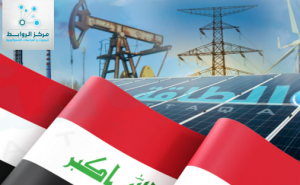
BY: Shatha Kalel
Iraq, historically dependent on oil revenue, is embarking on a critical journey to diversify its energy sources and improve its infrastructure. As part of its commitment to sustainable development, the country is taking significant steps toward rehabilitating and expanding its energy sectors. A landmark move in this direction is the recent signing of a major strategic contract between the Iraqi government and British Petroleum (BP), aimed at rehabilitating and developing four key oil fields in Kirkuk. This contract is not only a step forward in oil production but also includes plans to establish a 400-megawatt power station, which will contribute to the country’s energy stability and growth.
Energy Landscape in Iraq
Iraq is one of the world’s largest producers of oil, but its energy infrastructure has struggled to keep pace with the demand for electricity and the need for economic diversification. Over the past decade, the country has faced challenges in meeting its electricity demands, partly due to the aging power grid, insufficient investment in infrastructure, and security concerns. This has resulted in frequent power shortages, affecting both industrial growth and the daily lives of its citizens.
To address these issues, the government of Iraq has made it clear that energy development and diversification are central to its long-term economic strategy. This commitment has been further solidified by recent agreements, including the contract with BP, which represents a significant step in revitalizing Iraq’s energy infrastructure.
The BP Partnership: A Strategic Agreement
The deal between Iraq and BP focuses on the rehabilitation and development of four oil fields in Kirkuk. These fields are crucial to Iraq’s overall oil production, and by improving their efficiency and capacity, the country stands to increase its oil output and revenue. However, the agreement also emphasizes a critical shift toward gas development, a resource that Iraq has underutilized in the past.
The inclusion of a 400-megawatt power station in the deal further highlights the focus on energy diversification. This power station will provide much-needed electricity to Iraq’s national grid, easing power shortages and helping to stimulate industrial and economic growth. It also signals a new direction for Iraq’s energy sector, moving beyond its traditional reliance on oil to incorporate more sustainable and diverse energy sources, such as natural gas and renewable options in the future.
Strengthening International Economic Relations
The strategic partnership with BP also underscores Iraq’s broader goal of enhancing economic relations with major global players. Iraq’s political and economic agreements with Britain, which have been in place for some time, are now bearing fruit in the form of direct investment and technological expertise. This partnership is not just about energy; it represents a broader shift toward global collaboration, which can benefit Iraq’s economy on multiple fronts.
International partnerships like this one offer Iraq access to the expertise of global companies, which is crucial in building local capacity and improving the overall work environment for domestic businesses. Moreover, BP’s involvement in Iraq’s energy sector will create job opportunities, enhance workforce skills, and encourage further investments in the country’s infrastructure.
Job Creation and Local Development
The rehabilitation and development of the Kirkuk oil fields and the construction of the power station are expected to create thousands of jobs, both directly and indirectly. Local companies are likely to benefit from new opportunities for collaboration, while the Iraqi workforce will gain experience working alongside international experts in the energy field. The influx of knowledge, technology, and training provided by BP will not only enhance the skills of local workers but also improve the competitiveness of Iraqi companies in the global market.
This move aligns with Iraq’s broader efforts to reduce unemployment and foster sustainable economic development by creating a more favorable investment environment. By improving energy infrastructure and creating job opportunities, the government aims to reduce economic dependency on oil alone and build a more diversified and resilient economy.
Conclusion: A Vision for Iraq’s Energy Future
The signing of the strategic contract with BP is a pivotal moment for Iraq’s energy future. It reflects the government’s commitment to diversifying its energy sources, improving infrastructure, and strengthening economic partnerships with leading international players. By focusing on sustainable energy development and creating a favorable environment for local businesses, Iraq is laying the groundwork for long-term economic stability and growth.
With these strategic initiatives, Iraq is not only addressing its current energy challenges but also positioning itself as a key player in the global energy market. The path toward energy diversification and enhanced international collaboration will be vital in achieving the country’s economic aspirations in the coming decades.
Economic Unit/North America Office
Al Rawabet Center for Research and Strategic Studies
